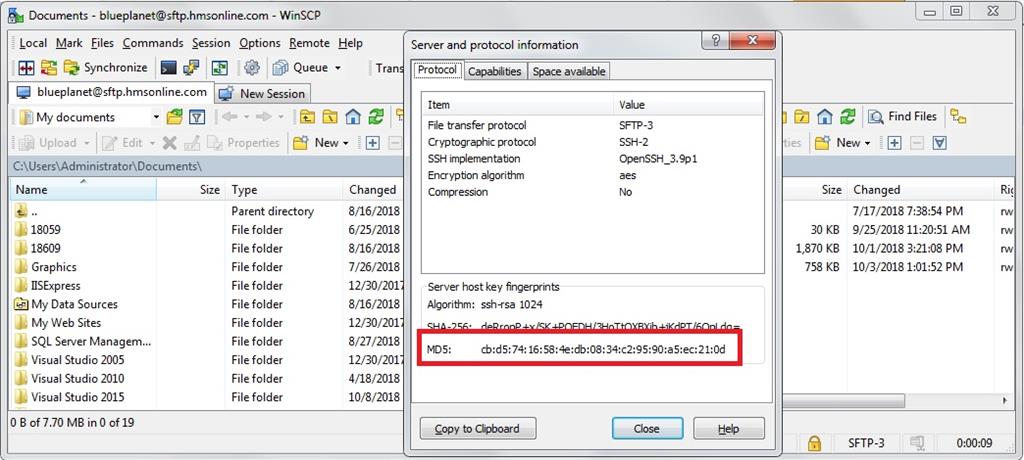

But it defeats the entire purpose of the script because it ends up just downloading the same files over and over again since the lastwritetime gets updated on the remote file. Oddly enough it does it on all the files on the remote server except a couple of them. I've even tried EnumerateDirectory and doing a single GetFile for each file and it's doing the same thing. I'm really struggling though as Session.GetFiles is modifying the remote files timestamp to the current date. WinSCP has a decent example in their documentation. $session.GetFiles ( "/home/martinp/*.xml", "d:\web\", $True, $transferOptions ).I'm trying to write a PowerShell WinSCP script to pull recently modified remote files from an SFTP server. $session.GetFiles ( "/home/martinp/*.txt", "d:\web\", $True, $transferOptions ).Check ( ) # Absolute paths + $True for -delete + Two calls for two source parameters # + calling Check on result to emulate the (default) "option batch abort" mode $transferOptions.FileMask = "*>1M" # -resumesupport=off Get -delete -filemask=*>1M -resumesupport= off *.txt *.xml web\ See also Capturing results of operations. To emulate the ( default) option batch abort mode, call TransferOperationResult.Check on method’s result. Use Session.SynchronizeDirectories instead. Value true ( $True in PowerShell) for method parameter remove.Ĭonverting transfer settings scripting switches to. You have to convert relative paths to absolute paths. Command parameter directory\newname maps to method parameter localPath. When multiple source file parameters are used, you need to call Session.GetFiles multiple times. Parameters mapping: Command parameter file maps to method parameter remotePath.

NET Assembly, map get command to Session.GetFiles method. XML log elements: download, rm (with -delete) The switch should come only after other parameters.Įffective options: confirm, reconnecttime, failonnomatch to enable preserving of directory timestamps, use -rawtransfersettings PreserveTimeDirs=1. rawtransfersettings setting1=value1 setting2=value2 …Īllows configuring any transfer settings using raw format as in an INI file. Transfer mode: binary, ascii (text), automatic (by extension).Ĭonfigures automatic resume/transfer to temporary filename. Has no effect when streaming ( - target). Has no effect when streaming ( - target).Īppend source file to the end of target file. See also synchronize, if you need to transfer modified or non-existing files only.ĭelete source remote file(s) after a successful transfer.ĭownload the latest file from the files selected by the file, file2 … parameters (typically file masks) only.Īutomatically resume transfer if possible.
Winscp getfiles code#
You can have WinSCP generate a code template for get for you. When wildcard is used, command succeeds, without doing anything, if the wildcard does not match any file, by default (you can change this using option failonnomatch on command). When specific file name is used, command fails when the file does not exist. Streaming is supported with the SFTP and FTP. With the /stdout command-line switch, - can be used as a target to stream the contents of downloaded file(s) to the standard output of.
Winscp getfiles download#
To download more files to current working directory use. Target directory must end with backslash. The last parameter specifies target local directory and optionally operation mask to store file(s) under different name. To download all files in a directory, use mask *. Filename can be replaced with wildcard to select multiple files. If more parameters are specified, all except the last one specify set of files to download. If only one parameter is specified, downloads the file to local working directory. Downloads one or more files from remote directory to local directory.


 0 kommentar(er)
0 kommentar(er)
